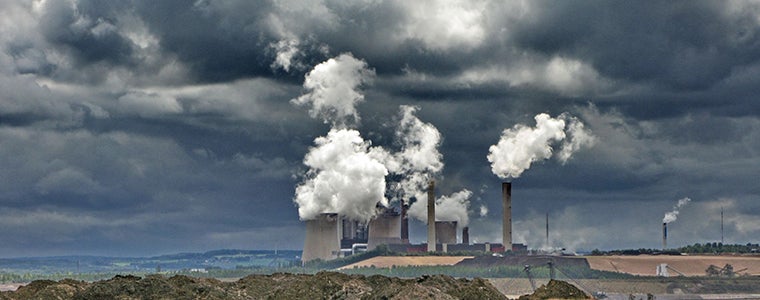To maintain global warming below 2°C, the world needs to switch to carbon-free electricity. But energy investors seem to disagree. Coal, gas, and diesel plants are a big chunk of the trillions of dollars scheduled to be invested in expanding power production capacity over the coming years.
Those investments are at risk of becoming stranded assets. They may need to be shut down, left idle most of the time, or retrofitted with expensive carbon capture and storage – if it turns out the technology becomes available – to be able to operate in a world consistent with the Paris Agreement. These are the findings of an analysis we conducted with the University of Oxford. (The study, led by Alex Pfeiffer, was just published in Environmental Research Letters).
We estimate that the coal, gas, and diesel power plants planned for the next decade would commit the world to 270 billion tons of carbon emissions over their lifetime. Is that a lot? Yes. The global economy is on a tight carbon budget. The more carbon we emit, the more temperatures will rise. For the targets of the Paris Agreement to be met, our assessment is that the power sector cannot emit more than 240 billion tons globally by the end of the century. The planned power plants would exceed that budget by a thick margin.
It gets worse: even if all those new investments were to be canceled, about a fifth of the existing coal, gas, and oil generation assets globally are at risk of being stranded. If kept for their average lifetime and ran at their average utilization rate, the existing generators would emit about 300 billion tons. A 20 percent overshoot compared to the 240 billion carbon budget. It turns out that the current stock of fossil-fueled power plants may not be sustainable.
How do we get to those numbers? Let me explain with an example: a large coal power plant may emit about 5 million tons of CO2 per year (for the specialists: I assumed a large 1GW coal plant that would emit about 1kgCO2/kWh and be operated about 5,000 hours per year). Now, power plants are built to last 30 to 40 years. Over their lifetime, a large coal plant may thus emit a total of 150 million tons of CO2. This commitment accounting of carbon emissions allows anticipating future carbon emissions from current investment decisions.
What can investors and governments do?
- Support the uptake of renewable energy. The region faces no lack of resources.
- This twice before investing in new fossil-fuel power plants: would they fit in a realistic pathway to zero emissions before the end of the century?
- Prepare to shut new and existing power plants earlier than anticipated.
- Plan for a smooth phase-down of fossil energy, paying attention to the impact on workers and communities.
The good news is that we are making progress. Renewable energy has become so cheap that it is increasingly considered the default option for investors just interested in making money. Almost two-thirds of capacity additions worldwide now are solar panels, windmills, or hydropower. Our job at the IDB is to continue leading the way analyzing what has worked best in the most advanced countries and replicate success stories.
Photo credit: Glasseyes View – Flickr


Leave a Reply